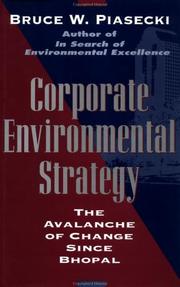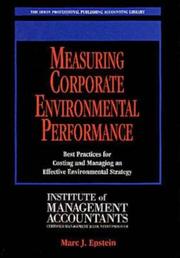| Listing 1 - 10 of 400 | << page >> |
Sort by
|
Book
ISBN: 3030341968 303034195X Year: 2020 Publisher: Cham : Springer International Publishing : Imprint: Springer,
Abstract | Keywords | Export | Availability | Bookmark
 Loading...
Loading...Choose an application
- Reference Manager
- EndNote
- RefWorks (Direct export to RefWorks)
This book brings together scientific experts in different areas that contribute to the railway track and transportation engineering challenges, evaluate the state of the art, identify the shortcomings and opportunities for research, and promote the interaction with the industry. In particular, scientific topics that are addressed in this book include railway ballasted track degradation/settlement problems and stabilization/reinforcement technologies, switches and crossings and related derailments causes, train-induced vibrations and mitigation measures, operations, management, and performance of ground transportation, and traffic congestion and safety procedures.
Civil engineering. --- Industrial management—Environmental aspects. --- Civil Engineering. --- Sustainability Management. --- Engineering --- Public works --- Pavements
Book
Year: 2017 Publisher: Cham : Springer International Publishing : Imprint: Springer,
Abstract | Keywords | Export | Availability | Bookmark
 Loading...
Loading...Choose an application
- Reference Manager
- EndNote
- RefWorks (Direct export to RefWorks)
This book presents innovative strategies for sustainable, socially responsible enterprise management from leading thinkers in the fields of corporate citizenship, nonprofit management, social entrepreneurship, impact investing, community-based economic development and urban design. The book’s integration of research and practitioner perspectives with focused best practice examples offers an in-depth, balanced analysis, providing new insights into the social issues that are most relevant to organizational stakeholders. This integrated focus on sustainable social innovation differentiates the book from academic research monographs on stakeholder theory and practitioner guides to managing traditional Corporate Social Responsibility (CSR) programs. Managing for Social Impact features 15 contributed chapters written by thought leaders, industry analysts, and managers of global and local organizations who are engaged with innovative models of sustainable social impact. The editors also provide a substantive introductory chapter describing a new strategic framework for enhancing the Return on Social Innovation (ROSI) through four pillars of social change: Open Circles, Focused Purpose Sharing, Mutuality of Success, and a Persistent Change Perspective.

ISBN: 0471106275 9780471106272 Year: 1995
Abstract | Keywords | Export | Availability | Bookmark
 Loading...
Loading...Choose an application
- Reference Manager
- EndNote
- RefWorks (Direct export to RefWorks)
Industrial management --- International business enterprises --- Strategic planning --- Environmental aspects --- Case studies. --- Management --- Case studies --- Industrial management - Environmental aspects - Case studies. --- International business enterprises - Management - Environmental aspects - Case studies. --- Strategic planning - Environmental aspects - Case studies.
Book

ISBN: 3662586568 366258655X Year: 2019 Publisher: Berlin, Heidelberg Springer Nature
Abstract | Keywords | Export | Availability | Bookmark
 Loading...
Loading...Choose an application
- Reference Manager
- EndNote
- RefWorks (Direct export to RefWorks)
Die Landwirtschaft in Deutschland, Europa und weltweit befindet sich in einem dramatischen Umbruchprozess. Einerseits bieten Liberalisierung und Marktöffnung, neue technologische Entwicklungen, die wachsende Weltbevölkerung und neue Kundenwünsche vielen landwirtschaftlichen Betrieben neue Möglichkeiten. Andererseits stehen viele Landwirtinnen und Landwirte in internationaler Konkurrenz, sind zum betrieblichen Wachstum mit hohem Investitionsrisiko gezwungen, sind Teil strikt regulierter Wertschöpfungsketten und müssen steigenden gesellschaftlichen Ansprüchen genügen. Zugleich machen sich viele Menschen Sorgen, dass die Prozesse der Rationalisierung und Modernisierung der landwirtschaftlichen Produktion auf Kosten von Natur-, Umwelt- und Tierschutz gehen. Auf vielen Ebenen wird daher bereits nach einer neuen Verständigung darüber gesucht, was die Gesellschaft von der Landwirtschaft erwartet, und welche Unterstützung die Landwirtinnen und Landwirte im Gegenzug dafür erwarten dürfen. Vor diesem Hintergrund entwickelt das vorliegende Open Access-Buch eine wissenschaftlich fundierte Kritik der Umweltauswirkungen der Landwirtschaft und der politischen Logik der Agrarpolitik. Es präsentiert ein neues Leitbild mit konkreten Indikatoren sowie alternative strategische Handlungsoptionen. Die umfassende Analyse wird zu einem Vorschlag für eine neue Architektur der europäischen Agrarpolitik gebündelt, die eine breite Diskussion um einen Neuen Gesellschaftsvertrag für die Landwirtschaft in Deutschland und Europa anstoßen soll.
Business & the environment, ‘Green' approaches to business --- International law --- Sustainability --- Law—Europe. --- Industrial management—Environmental aspects. --- Economic development—Environmental aspects. --- European Law. --- Sustainability Management. --- Development and Sustainability. --- Law --- Law—Europe --- Industrial management—Environmental aspects --- Economic development—Environmental aspects

ISBN: 0786302305 9780786302307 Year: 1996 Publisher: New York : McGraw-Hill,
Abstract | Keywords | Export | Availability | Bookmark
 Loading...
Loading...Choose an application
- Reference Manager
- EndNote
- RefWorks (Direct export to RefWorks)
Book
ISBN: 3319993712 3319993704 Year: 2019 Publisher: Cham : Springer International Publishing : Imprint: Palgrave Pivot,
Abstract | Keywords | Export | Availability | Bookmark
 Loading...
Loading...Choose an application
- Reference Manager
- EndNote
- RefWorks (Direct export to RefWorks)
This book aims to account for how project learning and adaptation occurs through Developmental Evaluation (DE), especially under conditions of uncertainty, complexity and change. Drawing on enactive cognitive science, the author presents a DE framework designed to augment traditional monitoring and evaluation activities. Discussing this framework in detail, the author also reports upon an extended case project investigating the sustainability of a market town in the UK. The framework aims to support the reader in capturing second-order learning and exploring opportunities for innovative responses to dynamic, uncertain and complex operational conditions. Recommendations are offered for future research, and how the framework might be incorporated into the design and funding of projects deployed to work with wicked problems.
Book
ISBN: 9811542945 9811542937 Year: 2020 Publisher: Springer Singapore
Abstract | Keywords | Export | Availability | Bookmark
 Loading...
Loading...Choose an application
- Reference Manager
- EndNote
- RefWorks (Direct export to RefWorks)
In the last two decades, coastal regions have relatively endured some of the fiercest oceanic and geophysical disasters than the earlier decades. Yet, disaster management governance fails to match the human, nonhuman and environmental calamity which is unfolding in its most frequent and unpredictable pattern. Between the Asian Tsunami of 2004 to the devastating Chennai and Kerala floods of 2018 the socio-industrial-livelihood impact alerts governments towards a greater and more serious compliance to laws for coastal conservation. The United Nations Office for Disaster Risk Reduction (UNDRR) in 2018 had shocking statistics to share as the deaths and damages related to only Tsunami disaster at the coasts to 251,770 and US$280 billions respectively in the last 20 years (1998-2017) as compared to 998 and US$ 2.7 billion in the previous 20 years (1978-1997). Coastal conservation is no more a question of casual governance but has become a need for survival. The region of South Asia which ranks much higher in its vulnerability, weak resilience and relatively undersupplied governance structures ought to take this responsibility on a priority. The spirit of Hyogu Declaration and the Sendai Framework for Action suggests preparedness and resilience building as key approach areas in coastal governance. The book is incomparable in its holistic and transdisciplinary social science based approach to disaster management which links conservation of marine flora and fauna, ecosystems and land management with decision making processes and coastal regulations. These grass root findings from the subcontinent are substantiated by a section on the most powerful court battle on the Kerala Floods as a guideline for readers to discerningly identify an ‘Act of God’ often used as a veil to hide lack of preparedness, apathy and political greed. This book becomes indispensable reading for anyone involved in research, administration or any level of decision making for the mitigation and prevention of disasters. Amita Singh, Professor at the Special Centre for Law and Governance and Founding Chairperson, Special Centre for Disaster Research, Jawaharlal Nehru University (JNU), India. R. Lalitha S. Fernando serves as a Professor in Public Administration, Faculty of Management Studies and Commerce of the University of Sri Jayewardenepura in Sri Lanka. Nivedita P. Haran, Indian Administrative Service (Rtd.), Former Additional Chief Secretary, Government of Kerala who spearheaded the first Kerala State Disaster Management Authority.
Book
Year: 2017 Publisher: Cham : Springer International Publishing : Imprint: Springer,
Abstract | Keywords | Export | Availability | Bookmark
 Loading...
Loading...Choose an application
- Reference Manager
- EndNote
- RefWorks (Direct export to RefWorks)
This volume provides the most current research on smart cities. Specifically, it focuses on the economic development and sustainability of smart cities and examines how to transform older industrial cities into sustainable smart cities. It aims to identify the role of the following elements in the creation and management of smart cities: • Citizen participation and empowerment • Value creation mechanisms • Public Administration • Quality of life and sustainability • Democracy • ICT • Private Initiatives and Entrepreneurship Regardless of their size, all cities are ultimately agglomerations of people and institutions. Agglomeration economies make it possible to attain minimum efficiencies of scale in the organization and delivery of services. However, the economic benefits do not constitute the main advantage of a city. A city’s status rest on three dimensions: (1) political impetus, which is the result of citizens’ participation and the public administration’s agenda; (2) applications derived from technological advances (especially in ICT); and (3) cooperation between public and private initiatives in business development and entrepreneurship. These three dimensions determine which resources are necessary to create smart cities. But a smart city, ideal in the way it channels and resolves technological, social and economic-growth issues, requires many additional elements to function at a high-performance level, such as culture (an environment that empowers and engages citizens) and physical infrastructure designed to foster competition and collaboration, encourage new ideas and actions, and set the stage for new business creation. Featuring contributions with models, tools and cases from around the world, this book intends to be a valuable resource for researchers, students, academics, professionals and policymakers interested in Smart Cities.
Book
ISBN: 1137435747 1137435763 Year: 2016 Publisher: London : Palgrave Macmillan UK : Imprint: Palgrave Macmillan,
Abstract | Keywords | Export | Availability | Bookmark
 Loading...
Loading...Choose an application
- Reference Manager
- EndNote
- RefWorks (Direct export to RefWorks)
This book connects business sustainability to supply network-based value creation and enhancement, and tests a number of key propositions in complex supply networks to identify key challenges. Examining practical issues such as carbon trading, green product development, worker safety, child labour and relations with local communities, Business Value and Sustainability advances the understanding of sustainability in supply network management. In presenting a supply management perspective including a tighter control of the supply base and the development of supplier capability through collaboration with NGOs, the authors contribute to both the theoretical advancement and practical development of this field. The book aims to raise the sustainability standards of businesses in an increasingly complex and inter- and intra-connected global supply network. .
Business. --- Industrial management --- Business logistics. --- Business and Management. --- Supply Chain Management. --- Sustainability Management. --- Environmental aspects. --- Supply chain management --- Logistics --- Industrial management-Environmen. --- Industrial management—Environmental aspects.
Book
ISBN: 9780415507165 9781844075904 9781849774925 9781136542602 9781136542640 9781136542657 1844075907 0415507162 1849774927 Year: 2010 Publisher: London Washington, DC Earthscan
Abstract | Keywords | Export | Availability | Bookmark
 Loading...
Loading...Choose an application
- Reference Manager
- EndNote
- RefWorks (Direct export to RefWorks)
| Listing 1 - 10 of 400 | << page >> |
Sort by
|

 Search
Search Feedback
Feedback About UniCat
About UniCat  Help
Help News
News